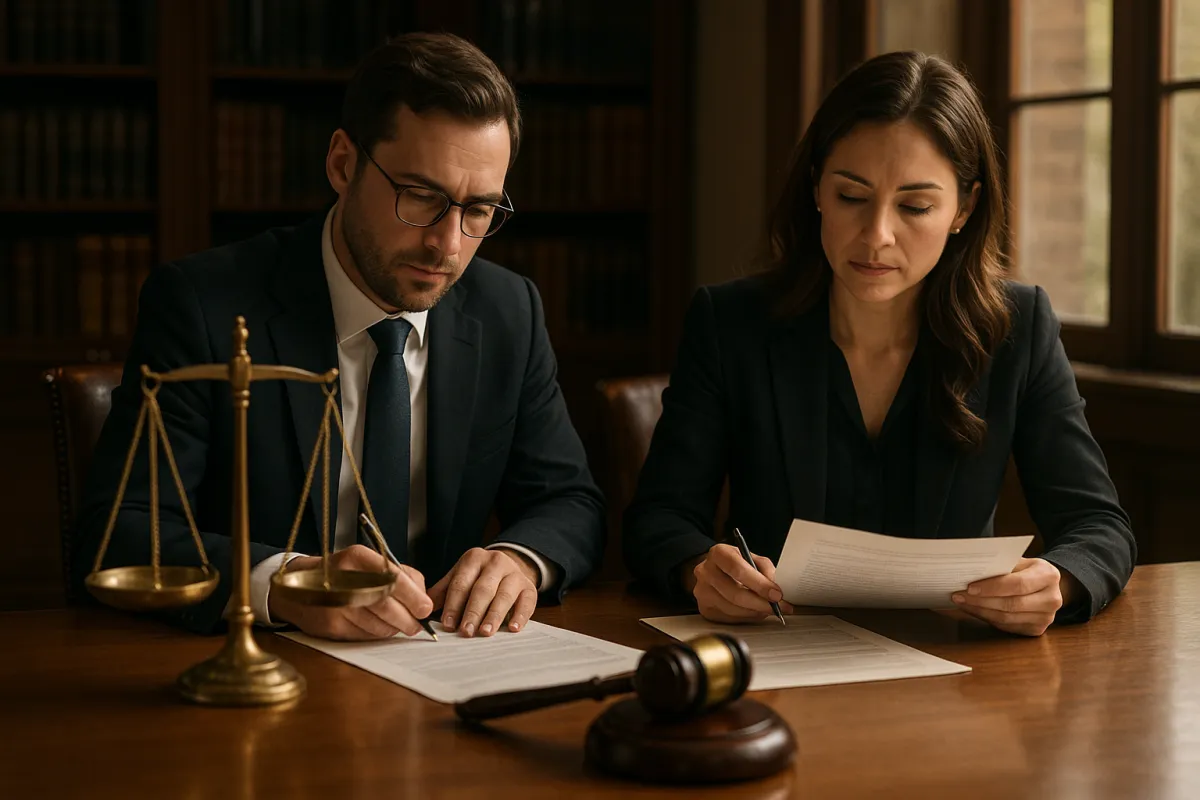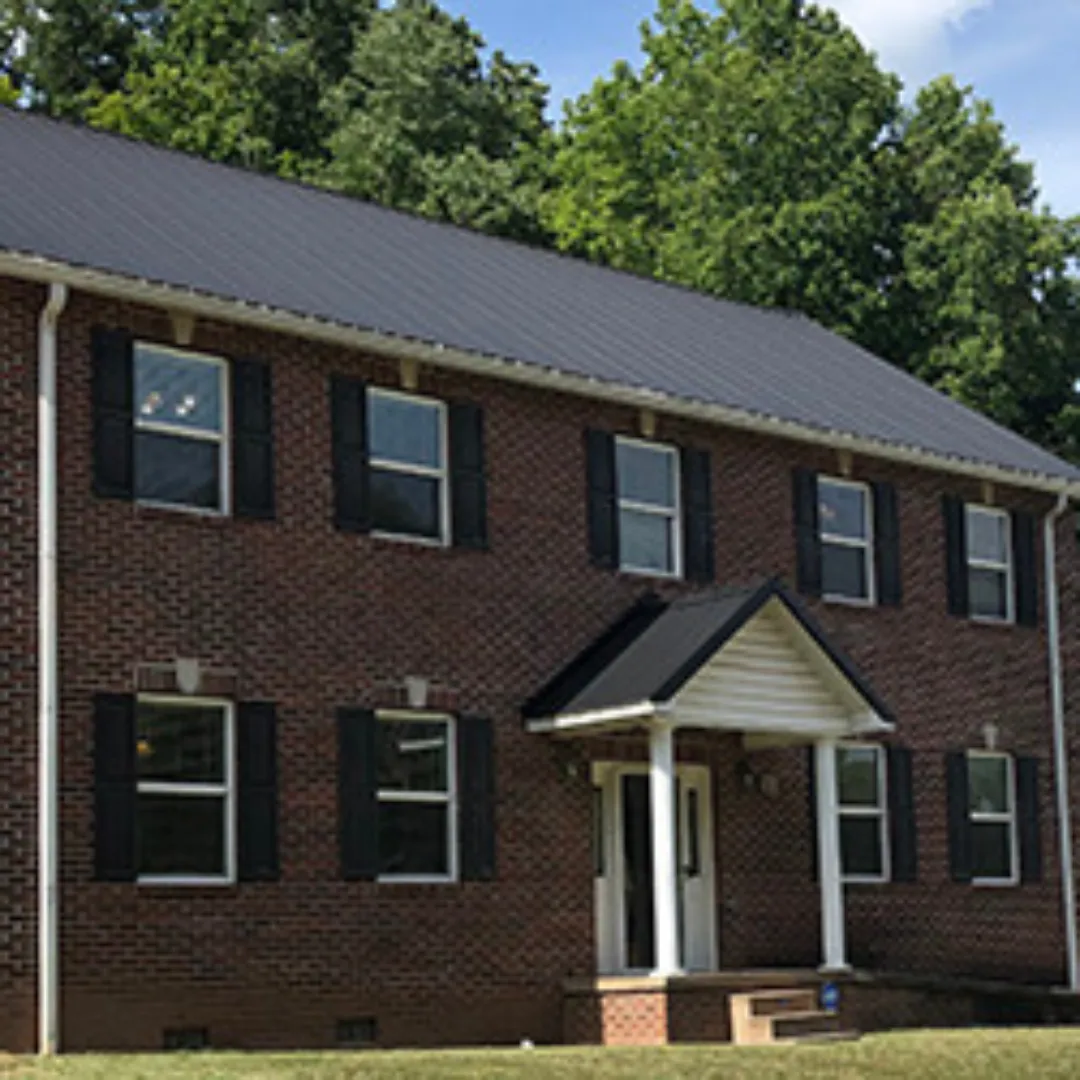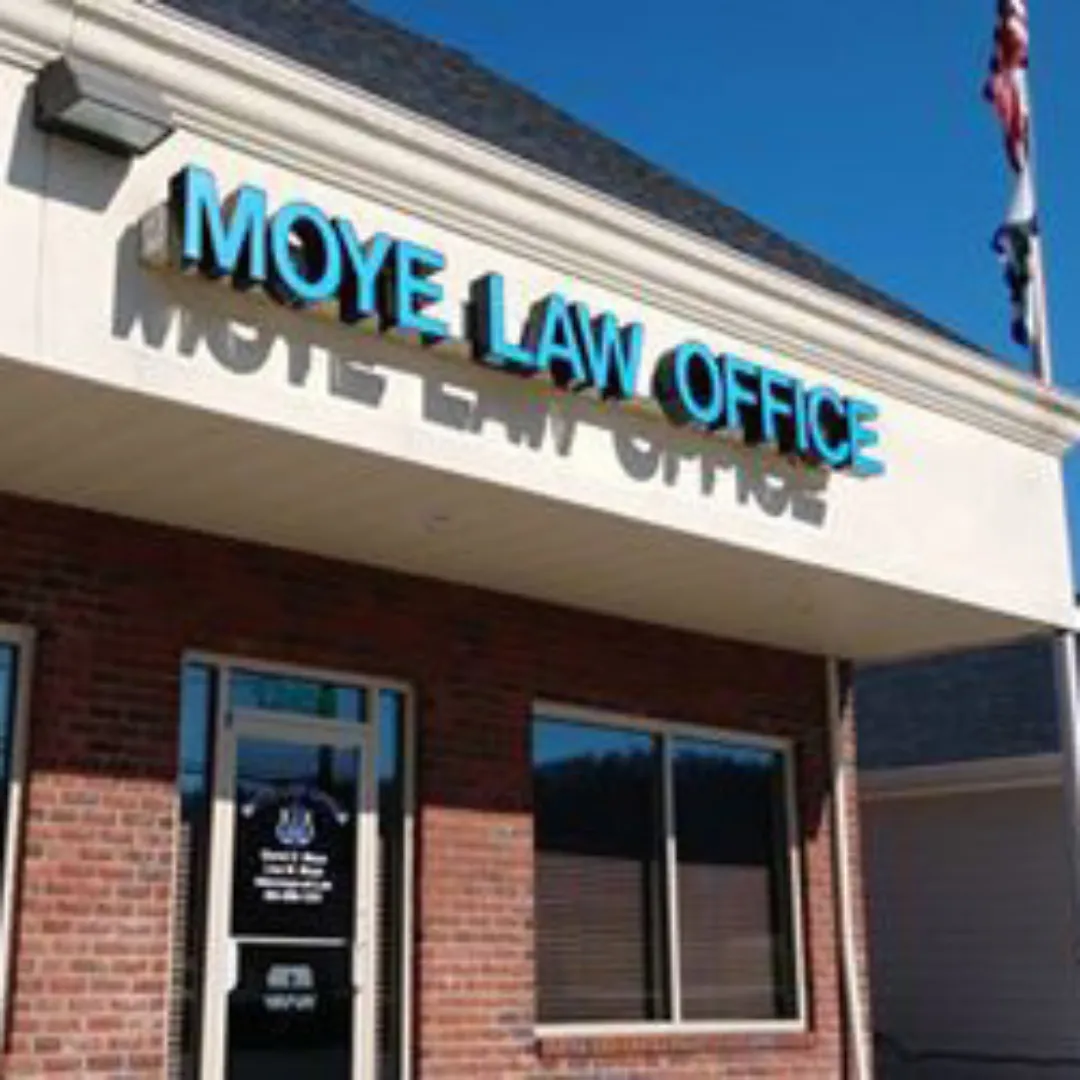
Blog
Blog

Expert Legal Services for Smooth Real Estate Transactions
Real Estate Transaction Legal Services: How to Find Expert Legal Support Near You
Whether you're buying your first home, leasing commercial space, or selling an investment property, real estate transactions can be complex—and the legal risks, costly. From reviewing contracts to resolving disputes, working with a knowledgeable real estate attorney can make all the difference.
In this guide, we’ll walk you through the services these legal professionals provide, how they protect your interests in both residential and commercial deals, and how to choose the best real estate lawyer near you.
What Does a Real Estate Attorney Do in Property Transactions?
Real estate attorneys provide legal oversight and advice at every stage of a property transaction. Their core responsibilities include:
Drafting and reviewing purchase agreements, leases, and deeds
Conducting title searches and handling disputes
Coordinating with lenders, brokers, and title companies
Ensuring all documents meet local zoning, tax, and disclosure requirements
Representing clients during closings and legal disputes
How Do Real Estate Lawyers Assist in Residential Property Deals?
For homebuyers and sellers, real estate attorneys offer peace of mind by:
Reviewing contracts and contingencies
Ensuring title and ownership are clear
Addressing issues uncovered during inspections or appraisals
Coordinating with lenders on mortgage documents
Ensuring a smooth and compliant closing process
What Legal Services Are Provided for Commercial Real Estate Transactions?
Commercial property deals often require more detailed legal involvement. Attorneys can assist with:
Reviewing leases and purchase agreements
Navigating zoning laws, land use, and environmental compliance
Drafting joint venture or partnership agreements
Advising on corporate structure, tax liability, and investment risk
Performing due diligence on title, financing, and property history
Why Hire a Lease Agreement Attorney for Rental Property Deals?
A lease agreement attorney ensures that rental contracts comply with local laws and protect the rights of both landlords and tenants. They can help:
Draft or revise lease terms
Handle eviction proceedings
Resolve disputes over repairs, rent, or security deposits
Advise on fair housing regulations and tenant rights
How to Choose the Best Real Estate Attorney Near Me
Start by looking for:
Lawyers with a focus in real estate law
Local expertise in your specific city, county, or state
Strong client reviews and case history in similar transactions
Search state bar directories, ask your real estate agent for referrals, or explore online legal platforms to find a licensed professional in your area.
What Qualifications and Experience Should You Look For?
Active state bar license in your transaction’s jurisdiction
Several years of experience in residential or commercial real estate
Familiarity with local regulations, zoning codes, and property tax laws
Proven track record in contract negotiation, dispute resolution, and closing services
How Does Location Impact Your Choice of Real Estate Lawyer?
Local attorneys:
Understand municipal requirements
Have working relationships with area title companies, inspectors, and lenders
Are familiar with common risks in your market or neighborhood
If you're buying property across state lines or in a different jurisdiction, hiring a lawyer with multistate licensing or firm reach can streamline the process.
What Are Property Closing Services and Why Are They Important?
Closing services provided by attorneys include:
Preparing and reviewing closing statements
Handling escrow disbursements
Ensuring all signatures, funds, and documents are in order
Recording the deed with the appropriate public office
These services help prevent last-minute errors, delays, or legal challenges after closing.
What Legal Steps Are Involved in a Property Closing?
Final contract review
Title clearance and insurance
Mortgage and loan documentation
Tax prorations and fee calculations
Signature collection and document filing
How Can a Real Estate Lawyer Protect You During Closing?
Attorneys can identify red flags before you sign anything. They help ensure:
The title is free of defects
The deal complies with state and federal laws
All documents reflect the agreed-upon terms
You’re not assuming unnecessary liability or financial risk
What Documents Does a Closing Attorney Review and Prepare?
Deeds
Settlement statements
Loan agreements
Escrow instructions
Promissory notes
Any special addenda related to repairs, occupancy, or timeline
What Legal Advice Is Essential for Commercial Real Estate Transactions?
Structuring partnerships or investment vehicles
Avoiding exposure in long-term leases
Identifying environmental liabilities
Planning for expansion, zoning, or redevelopment
Ensuring transparency and compliance with corporate governance
How Do Commercial Real Estate Lawyers Negotiate Terms?
They ensure favorable clauses regarding:
Rent escalations and renewal options
Maintenance responsibilities
Tenant improvements and build-out terms
Exit strategies and default remedies
They also help manage the legal side of mergers and acquisitions, asset transfers, and 1031 exchanges.
What Are Common Legal Risks in Commercial Property Deals?
Title defects
Breach of lease terms
Zoning violations
Inadequate disclosures
Failure to conduct due diligence
How Is Due Diligence Conducted in Commercial Real Estate?
Your attorney will:
Analyze historical title records
Review survey and zoning reports
Scrutinize financial statements, operating expenses, and property income
Verify compliance with environmental and building codes
How Can a Residential Real Estate Lawyer Help With Property Disputes?
They resolve:
Boundary disputes
Title claims or ownership conflicts
HOA violations
Easement or access issues
Co-owner disagreements
What Types of Property Disputes Require Legal Intervention?
Seller misrepresentation
Unauthorized construction
Fraudulent conveyance
Contract termination or specific performance cases
How Do Lawyers Resolve Title and Boundary Issues?
Through:
Quiet title actions
Reviewing and correcting recorded documents
Negotiating boundary settlements or easement agreements
Representing clients in court if needed
When Should You Consult a Lawyer for Lease Agreement Conflicts?
If a tenant refuses to vacate
If terms are unclear or breached
If the property is being sold or inherited
If rent increases or repair duties are contested
What Are the Key Benefits of Hiring a Real Estate Transaction Lawyer?
Risk mitigation: Spot legal issues early
Contract clarity: Prevent disputes through strong documentation
Time savings: Streamline coordination with other parties
Confidence: Know your rights are protected
How Does Legal Expertise Minimize Transaction Risks?
Attorneys help you:
Avoid loopholes
Resolve disputes without litigation
Meet all legal deadlines and disclosure requirements
Protect your financial interests from unexpected liabilities
What Role Does a Lawyer Play in Negotiating Contract Terms?
They can:
Add buyer/seller protections
Define remedies for breach
Adjust timelines or contingencies
Renegotiate terms as needed during due diligence
How Does Personalized Legal Service Improve Transaction Efficiency?
A dedicated attorney who knows your goals:
Answers questions quickly
Coordinates with your real estate team
Helps resolve last-minute issues
Offers project management across complex deals
How to Prepare for Your First Meeting With a Real Estate Attorney
Bring:
The purchase or sale agreement
Your loan documents
Inspection and appraisal reports
A list of questions or concerns
What Questions Should You Ask Your Real Estate Lawyer?
How many similar transactions have you handled?
What’s your fee structure?
How do you handle unexpected delays or disputes?
Will you attend the closing?
Can you review documents from my lender or title company?
How to Understand Legal Fees and Service Agreements
Real estate attorneys may charge:
Flat fees for standard transactions
Hourly rates for complex matters or disputes
Always ask for a written engagement letter outlining:
What’s included
How fees are calculated
Estimated total cost
Final Thoughts
Whether you’re closing on a new home, negotiating a commercial lease, or facing a legal dispute, working with a qualified real estate attorney ensures that your transaction is handled with skill, precision, and legal protection. By choosing the right legal partner near you, you can navigate the complexity of real estate with confidence, knowing your interests—and your investment—are protected from start to finish.
Moye Law Offices
We have two offices in West Virginia: Winfield and Cross Lanes.

CROSS LANES

Expert Legal Services for Smooth Real Estate Transactions
Real Estate Transaction Legal Services: How to Find Expert Legal Support Near You
Whether you're buying your first home, leasing commercial space, or selling an investment property, real estate transactions can be complex—and the legal risks, costly. From reviewing contracts to resolving disputes, working with a knowledgeable real estate attorney can make all the difference.
In this guide, we’ll walk you through the services these legal professionals provide, how they protect your interests in both residential and commercial deals, and how to choose the best real estate lawyer near you.
What Does a Real Estate Attorney Do in Property Transactions?
Real estate attorneys provide legal oversight and advice at every stage of a property transaction. Their core responsibilities include:
Drafting and reviewing purchase agreements, leases, and deeds
Conducting title searches and handling disputes
Coordinating with lenders, brokers, and title companies
Ensuring all documents meet local zoning, tax, and disclosure requirements
Representing clients during closings and legal disputes
How Do Real Estate Lawyers Assist in Residential Property Deals?
For homebuyers and sellers, real estate attorneys offer peace of mind by:
Reviewing contracts and contingencies
Ensuring title and ownership are clear
Addressing issues uncovered during inspections or appraisals
Coordinating with lenders on mortgage documents
Ensuring a smooth and compliant closing process
What Legal Services Are Provided for Commercial Real Estate Transactions?
Commercial property deals often require more detailed legal involvement. Attorneys can assist with:
Reviewing leases and purchase agreements
Navigating zoning laws, land use, and environmental compliance
Drafting joint venture or partnership agreements
Advising on corporate structure, tax liability, and investment risk
Performing due diligence on title, financing, and property history
Why Hire a Lease Agreement Attorney for Rental Property Deals?
A lease agreement attorney ensures that rental contracts comply with local laws and protect the rights of both landlords and tenants. They can help:
Draft or revise lease terms
Handle eviction proceedings
Resolve disputes over repairs, rent, or security deposits
Advise on fair housing regulations and tenant rights
How to Choose the Best Real Estate Attorney Near Me
Start by looking for:
Lawyers with a focus in real estate law
Local expertise in your specific city, county, or state
Strong client reviews and case history in similar transactions
Search state bar directories, ask your real estate agent for referrals, or explore online legal platforms to find a licensed professional in your area.
What Qualifications and Experience Should You Look For?
Active state bar license in your transaction’s jurisdiction
Several years of experience in residential or commercial real estate
Familiarity with local regulations, zoning codes, and property tax laws
Proven track record in contract negotiation, dispute resolution, and closing services
How Does Location Impact Your Choice of Real Estate Lawyer?
Local attorneys:
Understand municipal requirements
Have working relationships with area title companies, inspectors, and lenders
Are familiar with common risks in your market or neighborhood
If you're buying property across state lines or in a different jurisdiction, hiring a lawyer with multistate licensing or firm reach can streamline the process.
What Are Property Closing Services and Why Are They Important?
Closing services provided by attorneys include:
Preparing and reviewing closing statements
Handling escrow disbursements
Ensuring all signatures, funds, and documents are in order
Recording the deed with the appropriate public office
These services help prevent last-minute errors, delays, or legal challenges after closing.
What Legal Steps Are Involved in a Property Closing?
Final contract review
Title clearance and insurance
Mortgage and loan documentation
Tax prorations and fee calculations
Signature collection and document filing
How Can a Real Estate Lawyer Protect You During Closing?
Attorneys can identify red flags before you sign anything. They help ensure:
The title is free of defects
The deal complies with state and federal laws
All documents reflect the agreed-upon terms
You’re not assuming unnecessary liability or financial risk
What Documents Does a Closing Attorney Review and Prepare?
Deeds
Settlement statements
Loan agreements
Escrow instructions
Promissory notes
Any special addenda related to repairs, occupancy, or timeline
What Legal Advice Is Essential for Commercial Real Estate Transactions?
Structuring partnerships or investment vehicles
Avoiding exposure in long-term leases
Identifying environmental liabilities
Planning for expansion, zoning, or redevelopment
Ensuring transparency and compliance with corporate governance
How Do Commercial Real Estate Lawyers Negotiate Terms?
They ensure favorable clauses regarding:
Rent escalations and renewal options
Maintenance responsibilities
Tenant improvements and build-out terms
Exit strategies and default remedies
They also help manage the legal side of mergers and acquisitions, asset transfers, and 1031 exchanges.
What Are Common Legal Risks in Commercial Property Deals?
Title defects
Breach of lease terms
Zoning violations
Inadequate disclosures
Failure to conduct due diligence
How Is Due Diligence Conducted in Commercial Real Estate?
Your attorney will:
Analyze historical title records
Review survey and zoning reports
Scrutinize financial statements, operating expenses, and property income
Verify compliance with environmental and building codes
How Can a Residential Real Estate Lawyer Help With Property Disputes?
They resolve:
Boundary disputes
Title claims or ownership conflicts
HOA violations
Easement or access issues
Co-owner disagreements
What Types of Property Disputes Require Legal Intervention?
Seller misrepresentation
Unauthorized construction
Fraudulent conveyance
Contract termination or specific performance cases
How Do Lawyers Resolve Title and Boundary Issues?
Through:
Quiet title actions
Reviewing and correcting recorded documents
Negotiating boundary settlements or easement agreements
Representing clients in court if needed
When Should You Consult a Lawyer for Lease Agreement Conflicts?
If a tenant refuses to vacate
If terms are unclear or breached
If the property is being sold or inherited
If rent increases or repair duties are contested
What Are the Key Benefits of Hiring a Real Estate Transaction Lawyer?
Risk mitigation: Spot legal issues early
Contract clarity: Prevent disputes through strong documentation
Time savings: Streamline coordination with other parties
Confidence: Know your rights are protected
How Does Legal Expertise Minimize Transaction Risks?
Attorneys help you:
Avoid loopholes
Resolve disputes without litigation
Meet all legal deadlines and disclosure requirements
Protect your financial interests from unexpected liabilities
What Role Does a Lawyer Play in Negotiating Contract Terms?
They can:
Add buyer/seller protections
Define remedies for breach
Adjust timelines or contingencies
Renegotiate terms as needed during due diligence
How Does Personalized Legal Service Improve Transaction Efficiency?
A dedicated attorney who knows your goals:
Answers questions quickly
Coordinates with your real estate team
Helps resolve last-minute issues
Offers project management across complex deals
How to Prepare for Your First Meeting With a Real Estate Attorney
Bring:
The purchase or sale agreement
Your loan documents
Inspection and appraisal reports
A list of questions or concerns
What Questions Should You Ask Your Real Estate Lawyer?
How many similar transactions have you handled?
What’s your fee structure?
How do you handle unexpected delays or disputes?
Will you attend the closing?
Can you review documents from my lender or title company?
How to Understand Legal Fees and Service Agreements
Real estate attorneys may charge:
Flat fees for standard transactions
Hourly rates for complex matters or disputes
Always ask for a written engagement letter outlining:
What’s included
How fees are calculated
Estimated total cost
Final Thoughts
Whether you’re closing on a new home, negotiating a commercial lease, or facing a legal dispute, working with a qualified real estate attorney ensures that your transaction is handled with skill, precision, and legal protection. By choosing the right legal partner near you, you can navigate the complexity of real estate with confidence, knowing your interests—and your investment—are protected from start to finish.
Moye Law Offices
We have two offices in West Virginia:
Winfield and Cross Lanes.

CROSS LANES
We Are Here To Help
Do you have a query or problem that you would like to talk about, or are you curious to hear more about how we can help you?
Get in touch today! We look forward to hearing from you.
Assistance Hours
Monday – Friday: 8:30am – 4:30pm
Saturday: By appointment only
Sunday: CLOSED
Subscribe to our Newsletter
We Are Here To Help
Do you have a query or problem that you would like to talk about, or are you curious to hear more about how we can help you?
Get in touch today! We look forward to hearing from you.
Assistance Hours
Monday – Friday 8:30am – 4:30pm
Saturday: By appointment only
Sunday CLOSED

